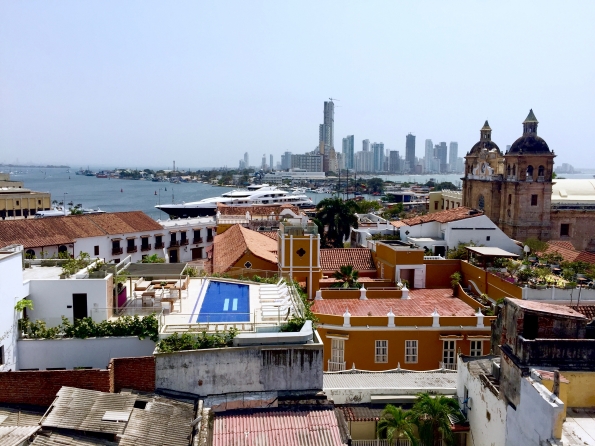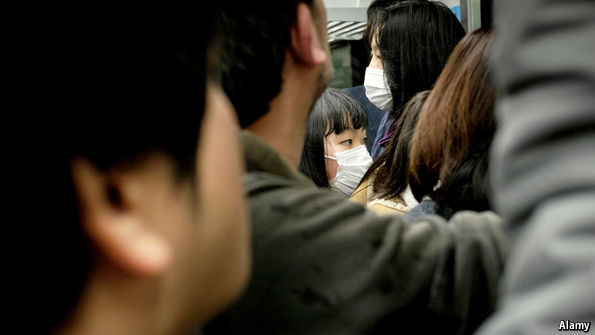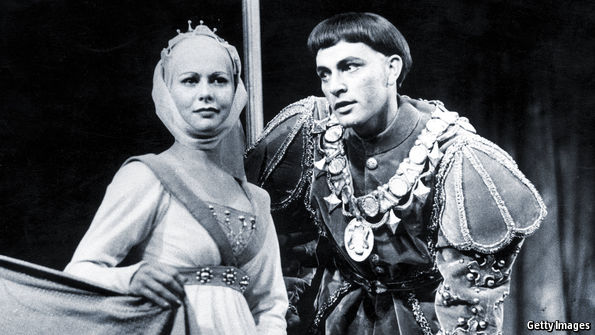 Santosh Marrivagu, an MBA student at ESMT in Germany redefines return on investment after a running business programme in South Africa
Santosh Marrivagu, an MBA student at ESMT in Germany redefines return on investment after a running business programme in South Africa
LIKE it or not, most people think in stereotypes. It is widely believed that MBA students, for example, only think in terms of the return on investment (ROI) of their degree. Alas, having been through an MBA programme, this is not far from the truth. But in addition to equipping us with the skills to spot a good investment from a bad one, an MBA should also provide an insight into the differences between price and value. For those willing to take this lesson on board, that idea will stay with you for a lifetime. As John Ruskin, a Victorian art critic and philanthropist, said, “the highest reward for a person’s toil is not what they get for it, but what they become by it.” That’s my take on ROI.
As part of my degree at ESMT Berlin, I joined the Responsible Leaders Fellowship, a six-month voluntary initiative for business-school students from developing countries to help in other emerging markets. I went to offer support at TSiBA, a non-profit private business school in Cape Town, South Africa. TSiBA students live in extreme poverty, cramped into unhygienic shacks with high levels of teenage pregnancy, rampant gang crime and high school-dropout rates. Education and opportunities are luxuries they couldn’t afford without donations, volunteers and consultation services.
by E.B | SINGAPORE
 Erika Biagtan, a member of the The Economist's sales team, decided to ignore her long list of fears about applying for an MBA programme
Erika Biagtan, a member of the The Economist's sales team, decided to ignore her long list of fears about applying for an MBA programme
SOME say an MBA is no longer required to pursue a business career. Nowadays, the argument runs, most employers prefer experience to academic qualifications. And in any case, given the exorbitant tuition fees, the return on investment is lousy. That is one viewpoint. Let me share my own.
I never thought the mere decision to study further would be so stressful. It has been 14 years since I last attended school. Of course, I have been through the odd corporate training programme, but these have lasted a couple of days at most, not years. Just the idea of going back to school, makes me feel both intimidated and giddy with excitement. There seems to be so many things I need to brush up on, especially the fundamentals in mathematics. Reading others’ MBA stories does not always put my mind at rest. Learning how people juggle an arduous degree with their work and family strikes me with awe. And then, once again, there is the financial outlay and whether I will ever recoup it.
by Alisa Anantvoranich | Imperial College Business School

Alisa Anantvoranich, an MBA student at Imperial College in London, draws inspiration from the skies
THE Innovation Challenge. Imperial College Business School’s annual MBA student competition inspired visions of conquering new territory and discovering hidden treasures. The premise is simple, over five days students work in teams to develop an invention that will have a positive social impact.
Innovation runs deep at Imperial. As MBAs, we naturally seem to welcome challenges, whether in the classroom or through student-organised, weather-defying treks up Mount Snowdon. But, before diving headfirst into designing sleep pods for campus libraries, or QR codes for the homeless (an alternative to giving loose change), we were given some direction—our innovations must fit under the theme of “Sustainable Mobility”.
by Ben Pullen | ESCP Europe Business School
 Ben Pullen, an alumnus of ESCP Europe Business School, tours Europe in three Teslas to push the benefits of greener transport
Ben Pullen, an alumnus of ESCP Europe Business School, tours Europe in three Teslas to push the benefits of greener transport
WE CAME up with the idea during a class for my MSc in Energy Management degree at ESCP Europe Business School. Why not organise a tour of Europe in electric vehicles (EVs), to show the general public how easy it is to tackle climate change through greener transport? Fast forward 22 months and, with support from TryMyEv, an organisation that arranges EV test drives, nine students and alumni embarked on a seven-day trip in three Tesla Model S cars. En route we would take in four of ESCP Europe’s campuses, visit the Tesla factory in the Netherlands and cross seven international borders, all displayed live online on EverTracker.
The first task, on collecting the Teslas, was to name them: Jupiter (black), Thor (white) and Aurora (red). Over 100 people came to the first of our tour conferences, “Electric Vehicles in the UK: Turning Niche to Mainstream”. Many had used our free Tesla shuttle service from local tube stations.
by Elisabeth Novak | McGill University
 Elisabeth Novak, a student at McGill University's Desautels Faculty of Management, undertakes the "Hot Cities of the World Tour" of emerging markets
Elisabeth Novak, a student at McGill University's Desautels Faculty of Management, undertakes the "Hot Cities of the World Tour" of emerging markets
EIGHT flights, two developing countries, five cities, 25 meetings with 25 different companies in 10 different industries. If I told you that you could do this in less than 10 days, you would probably think I was crazy. And then I would tell you about the Hot Cities of the World Tour at the University of McGill’s Desautels Faculty of Management, which has followed such a hectic schedule for the past eight years. Close to 40 McGill undergraduates, MBAs and inspiring alumni take to developing parts of the world to gain business experience outside of the classroom, and learn from business leaders, as well as politicians, media figures and non-profit organisations in emerging economies.
This year, I was lucky enough to be one of the organising students, with Chile and Colombia as our destinations. After months of planning, thousands of e-mails, several Skype calls and hundreds of meetings, we set off on our journey. From the moment we set foot in Santiago, Chile, our first stop, we were welcomed with typical Latin-American warmth, immediately putting us at ease after long flights and little sleep. In the city we met the founder of Start-up Chile, a start-up hub that has been nicknamed “Chilecon Valley”. There, we had the chance to meet with young entrepreneurs—some Chilean, some international—and learn about their past failures and successes in the start-up world. Chilecon Valley came across as a space fostering innovation, creativity and grit, which many undergraduates and young professionals aspire to work in. We left feeling inspired and eager to discover more about this area of the globe.
by Erica Zendell | MIT Sloan School of Management
 Erica Zendell, a student at MIT, says there is more to an MBA than just fitting in
Erica Zendell, a student at MIT, says there is more to an MBA than just fitting in
I HAVE always been a bit of an unconventional MBA. I studied comparative literature in college, a far cry from the economics degrees of many of my peers, and an even further cry from the major in which I began my undergraduate career, electrical engineering.
Before business school, I was a writer without any tested business experience; I had demonstrated little interest in the subject beyond a decent GMAT score and the fact that I was writing case studies at business schools. During business school, my main extracurricular activity was running a true-storytelling event, my startup was creating a podcast, and my favourite class was a leadership course centred on reading and performing Julius Caesar. After business school, I’ll be remaining contrary, as I start work at a retail company rather than the usual consulting, big tech or finance firms.
by Justin Chandler, University of South Carolina
 Justin Chandler, an MBA student at South Carolina’s Darla Moore School of Business, wonders whether he made the right choice taking the Japanese language track in Tokyo
Justin Chandler, an MBA student at South Carolina’s Darla Moore School of Business, wonders whether he made the right choice taking the Japanese language track in Tokyo
IT WAS only the second day of the semester when, standing on the train platform at Nakaitabashi station, a small, single-line affair on the outskirts of Ikebukuro, I wondered if I would have chosen to study in Tokyo had I understood the ins-and-outs of commuting in the city. I thought I had done well finding an apartment only eight kilometres from class. Most of the route would be by train, after all. However, the short walk to and from the station notwithstanding, with four separate train lines and two station transfers along the way, I had unwittingly guaranteed myself a 90-minute morning rush-hour commute to class five days a week. Walking would be as quick, if were not for the stifling heat and humidity, stoically worn by Tokyo travelers like a sweaty badge of honor. Only days before, just about the only walking involved in my commute was from my doorstep to my driveway. As I settled into the next hour of steamy trains and crowded sidewalks, I began to re-evaluate not only my rookie choice of apartment locale, but the decisions that brought me to Tokyo to begin with.
by Stephen Prsa, HEC Paris MBA
 Stephen Prsa, an MBA student at HEC Paris, learns some business lesson from the school's end-of-year talent show
Stephen Prsa, an MBA student at HEC Paris, learns some business lesson from the school's end-of-year talent show
I AM not much of an actor. At no point throughout my professional career have I had the opportunity to stand on stage and pretend to be someone I am not. In fact, the closest I came over my five-year career in supply chain operations at PepsiCo Canada was standing in front of 150 technicians and reviewing the year’s strategic operating plan.
So when I came to HEC Paris for my MBA and heard about the annual talent show, I had no intention of signing up. Yet against all inner resistance, my peers convinced me to participate. My act was two-fold: a solo performance as a rapper, transforming lyrics of Drake’s “Hotline Bling” to “Piano Bar Bling”, and then again as Michael Jackson, Lord of the Underworld, in a zombie dance battle that perfectly matched this year’s theme of “Freak Show.”
 Adnan Sarwar, a former MBA student and current Economist intern, gives prospective MBAs five things to consider
Adnan Sarwar, a former MBA student and current Economist intern, gives prospective MBAs five things to consider
Don’t fund yourself
In my case it was £24,000 ($33,800), distance learning, over three years. You get books and some tuition, but mostly you are on your own. Students get together to form study groups; some work hard while others are busy with their jobs and families. Everyone passes.
I managed to find £8,000 for the first year. Then the second year came around and I struggled. I spoke to my student support officer who offered little support. I should have had all the money sorted, he said. Welcome to the real world.
I was working in a bar at the time to pay for the course. Most of my cohort were funded by their companies and then locked into contracts for a few years. That is the way to do an MBA: your firm pays and then guarantees you a job.
Ivo Nikolov finds the switch from Formula 1 engineer to MBA student daunting
 I WORKED hard to prepare for the start of the Warwick Business School (WBS) full-time MBA. I was a mechanical designer, spending nine years in the automotive industry, five of those in Formula 1. That is not a common background for an MBA candidate and I approached the 12-month programme with some trepidation, questioning if this was really the right move. Would an MBA give me the opportunity to transform my career? Could my post-MBA career be as fulfilling as the one I was leaving, even though I wanted change?
I WORKED hard to prepare for the start of the Warwick Business School (WBS) full-time MBA. I was a mechanical designer, spending nine years in the automotive industry, five of those in Formula 1. That is not a common background for an MBA candidate and I approached the 12-month programme with some trepidation, questioning if this was really the right move. Would an MBA give me the opportunity to transform my career? Could my post-MBA career be as fulfilling as the one I was leaving, even though I wanted change?
I expected to be different from my new colleagues. I felt I would have to catch up with those from traditional MBA feeder industries such as finance or consulting; people with more business experience than me. Before the programme started, I studiously leafed through the pre-reading materials on the core subjects, familiarising myself with the terminology. But only a few hours into the first day I realised there was nothing that could prepare me for the real thing. The cohort was divided into “Syndicate Groups” of six or seven students. We were expected to develop these into tightly knit teams to carry out all our group assignments. The first week was a non-stop series of teambuilding challenges. We got to know each other and tried to work together under great time pressure—not to mention the competitive drive as every group tried to make their mark early and win the challenges. We chose team names and wrote charters of behaviours to which we expected to hold ourselves accountable.
Advertisement
Advertisement feature
Advertisement
Test your EQ
Take our weekly news quiz to stay on top of the headlines
Want more from The Economist?
Visit The Economist e-store and you’ll find a range of carefully selected products for business and pleasure, Economist books and diaries, and much more
Advertisement